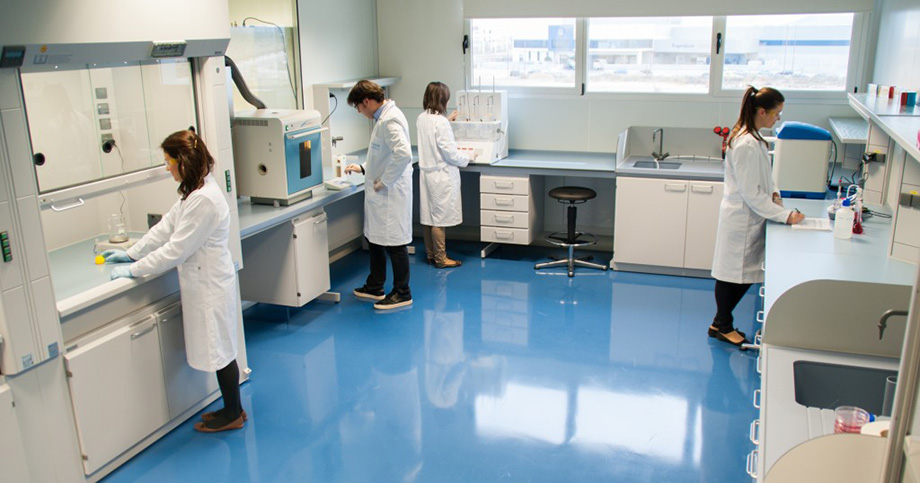HACCP and risk management in the Cannabis industry
The HACCP (Hazard Analysis and Critical Control Point) was originally developed for NASA food and nutritional supplement requirements in 1960. The HACCP’s main purpose was to ensure the safety of the food products and additives used by astronauts that were part of the US space program. The HACCP methodology is more focused on early identification of the risks and preventing/minimizing/eliminating those risks before they occur in addition to controlling the risks via an appropriate mitigations, detection and monitoring.
HACCP is a very common standard in the food industry. As many Cannabis products, especially in the recreational markets, are Cannabis infused eatables, such as Cannabis cookies, Cannabis beverages, Cannabis sauce, gummies etc. many Cannabis manufacturing facilities follow HACCP principles and certification in order to ensure safe edible Cannabis products .
In order to successfully implement HACCP in the eatables Cannabis industry, the company has to have a quality assurance function and management, and employees should be fully committed to the process. Part of the quality requirements will include control over production, sampling, testing, monitoring, employees training, documentation and validation. Despite the fact that HACCP is very important, it is not stand alone certification and will cover only a small part of the quality standard for manufacturers of industrial food and Cannabis products, such as the GMP. GMP is very common in the pharmaceutical, medical, food supplements, cosmetics and food industries. Recently, GMP was adopted by the leading cannabis industry countries such as Australia, Canada and Israel.
What is the different between HACCP and GMP certification in terms of Cannabis?
GMPs cover all policies, procedures, practices, processes, scientific rationales, risk management and controls required to achieve a safe and effective Cannabis product to be used by patients and consumers.
The GMP certification process is involved with personnel training, good documentation practices, detailed SOPs and procedures, manufacturing instructions, control over critical parameters defined as part of the validation stages, GMP standard of the manufacturing facility and machinery, cleaning and sanitation methods, final product testing and release specifications, product packaging, storage and shipment, hygiene principles, pest control and many more.
On the other hand, HACCP is more about identification of hazards and control. HACCP covers preventive controls from raw material weighting step to final product packaging. Focusing on climate conditions such as storage temperatures, mainly in order to reduce microbial proliferation and bio-burden and contamination prevention.
HACCP does not include supplier qualification, cleaning, sanitizing, in-process controls testing and release specifications and validated testing methods, shipping validation and other GMP principles. HACCAP is more about safety, while GMP in addition to safety is more about efficacy, consistency and quality.
HACCP or ISO 9001 may be a good place to start building the company quality system towards GMP certification and therefore the cannabis industry must go beyond HACCP.
FDA Food Safety Modernization Act (FSMA)
The FDA Food Safety Modernization Act (FSMA) is a food safety guideline which is also relevant for Cannabis eatables manufacturing. Under FSMA regulations, food and eatables manufacturers should identify biological, chemical or physical hazards, determine the risk level of the hazard, and implement controls and mitigations in order to minimize the residual risks to an appropriate acceptable level. The FSMA guidelines contain reference to the 21 CFR 117 updated food “Good Manufacturing Practices (cGMPs) and principles that may be adopted by medical or recreational cannabis products manufacturing.
Cannabis products common risks
Cannabis product risks may be as result of poor quality of raw materials and Cannabis flowers as well as contamination from the manufacturing facility and equipment. Different physical, chemical and microbial contaminations can be found in the final product and risk patients’ wellbeing. Contaminants such as heavy metals, toxins, foreign matter, bacteria, yeast & molds, cleaning agents, pesticides, herbicides and solvents residuals, agricultural chemicals, food allergens are very common in non-GMP cannabis growers and manufacturers.
Cannabis GMP certification main principles
Cannabis manufacturing facilities should be designed based on GMP principles in terms of construction material, personnel, material and waste flow and environmental conditions control. Moreover, the processing rooms where the product is exposed to the environment should be clean rooms. Different product statuses should be segregated and controlled. Procedures should be implemented for mix up, contamination and cross-contamination prevention.
The company Quality Management system should have to follow deviations reporting, deviations investigations, CAPA (Corrective Actions and Preventive Actions), internal audits, employees training and risk management procedures.
About Cannabis GxP consultancy
Cannabis GXP is proud to stand at the forefront of the Cannabis industry in Israel and worldwide thanks to many years of experience in these areas.
Our team is compelled to spread the message of the importance of cannabis science, regulation and standardization as the world enters a new era of cannabis legislation.
We aim to position our clients with their best foot forward when it comes to anything and everything cannabis related.
Our vast expertise allows us to assist companies in a wide range of services and needs: Anything from Cannabis R&D, growing and manufacturing, new products development, facility design, technology, Quality Assurance, Good Practices (GAP/GMP/GLP/GDP/GCP), staff training, local and global regulations.
Cannabis GxP is a subsidiary company of Bio-Chem Ltd. (2007), a consultancy firm for the Pharmaceutical field, Medical devices, Cosmetics and food supplements industry based in Israel.
Our cannabis consultancy services include:
If you need one or several of our services, we will be more than happy to assist.
Please do not hesitate to contact us for further information.
